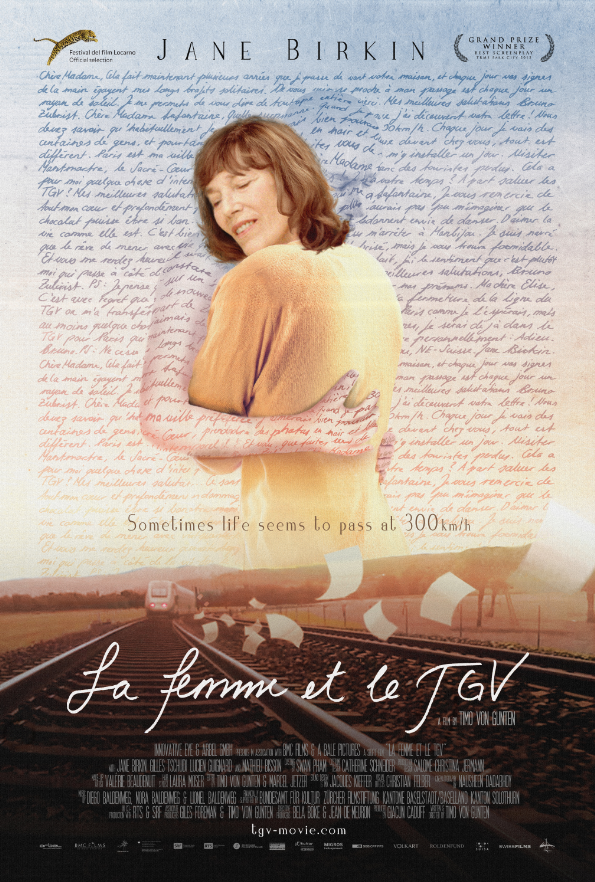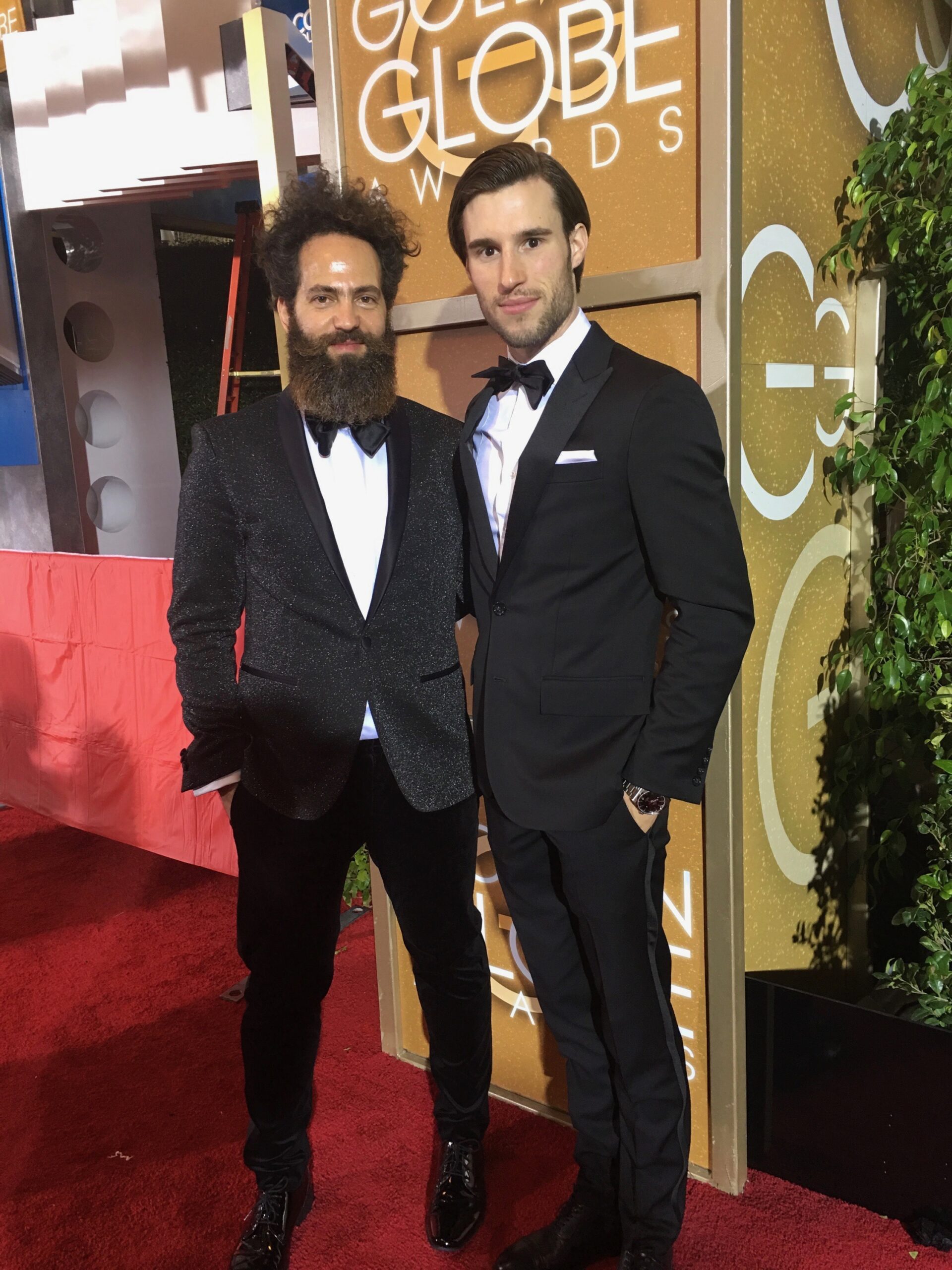 Back in 2009, the New York Film Academy awarded a Tuition Grant to a passionate young filmmaker from Switzerland, Jean de Meuron. While at NYFA, de Meuron got a full scope of the movie-making landscape, studying filmmaking, screenwriting, and cinematography at both the New York and Los Angeles campuses.
Back in 2009, the New York Film Academy awarded a Tuition Grant to a passionate young filmmaker from Switzerland, Jean de Meuron. While at NYFA, de Meuron got a full scope of the movie-making landscape, studying filmmaking, screenwriting, and cinematography at both the New York and Los Angeles campuses.
Now residing in Los Angeles, de Meuron was recently Executive Producer on the short film “La femme et le TGV,” directed by Timo von Gunten and starring César Award nominee Jane Birkin. The short film, which was inspired by true events, was nominated for a 2016 Academy Award in the Best Live Action Short Category!
We had a chance to speak to our former student before his big day at the Academy Awards this upcoming Feb. 26th, 2017.
Congratulations on your film’s Academy Award nomination! In your own words, what is “La femme et le TGV” about?
“La femme et le TGV” is a charming tale about a lonely woman who, through poetic and thoughtful letters, connects and builds a close relationship with a TGV train driver that passes her house at 190 mph every single day. As the two anonymous souls share their worlds by writing to each other, one fateful day the train does not pass her house, leading her to embark on a journey away from the place she calls home in search of that lost connection.
How did this film come about and how did you become involved with the project?
Our director, Timo von Gunten, read this incredible true story in a Swiss tabloid about a woman who’s been waving at the passing TGV train for many years from her balcony. He immediately fell in love with the whimsical nature and tone of this true story: A woman and a man writing letters to one another without ever meeting in person — or at least for the first couple of interactions. A huge inspiration for Timo has always been “Amélie” — and I think this is quite apparent in his work, as far as the visuals and camera blocking are concerned. However, Timo has such a strong style and visual sense on his own, so he puts his own stamp as a director, infused with elements from the works of Jean-Pierre Jeunet and Wes Anderson.
I met Timo while I was a Jury Member at the Basel Gässli Film Festival, where I saw his short film that he had directed. I was immensely impressed with his visual flair, mise-en-scène, sensitivity with which he directed actors and staged scenes, as well as the color palette, soundtrack and edit. There was a filmmaker at work, who I considered a true artist that caught my attention. During the festival, I approached him, complementing his work and saying that I would like to work with him very much. The rest, so they say, is history.
How did you attach Jane Birkin to the project? And what was it like to work with her?
Timo tells this story best, so I extend the courtesy of having him share his thoughts here, as he as the director, worked most closely with her:
“First of all, I had to write a screenplay that was emotional, touching. I have a very good friend, a casting director and acting coach in London, who helped me to pass on the script to Jane’s agent. What I didn’t know, of course, and I was quite lucky — I have to admit that — the topic of solitude resonates so much with her. She just fell in love with the story. She called me up and said wants to do it. However, the funny thing was, first she said, “I want to do it, but I can’t because I’m not supposed to ride bicycles anymore.” And as you know, the film has loads of biking scenes… Working with Jane was quite an extraordinary experience because she has this inner beauty still kept alive. She’s quite fragile but very, very truthful. That’s what’s really great about her.” — from Timo von Gunten’s interview with ScreenPicks (Alfonso Espina) – Interview: Timo von Gunten Talks About ‘La Femme et le TGV’
I would add that Jane has this incredible generosity and gentle kindness that I witnessed while we were attending the Locarno Film Festival, where she was awarded the Golden Leopard for her Life Achievement.
Can you tell us how you found out about NYFA and the Tuition Grant?
While I was a student at the New York Film Academy, NYFA founder Jerry Sherlock, who had always been very supportive of me, suggested that I should apply for the Tuition Grant — as I had done several short films during my studies that did the festival circuit. While applying, I put all of my passion and dedication into my application materials, meaning I went above and beyond by presenting a strong package. When I was awarded the Tuition Grant I was very proud.
Would you say your NYFA experience was useful in terms of being able to produce this film?
Certainly. I always liked the New York Film Academy’s philosophy and educational approach of “learning by doing.” The practical experience enabled me to gain a very sophisticated understanding of physical production, and all its challenges that come with it. As my favorite filmmaker of all time, Steven Spielberg, once noted, “Filmmaking is all about appreciating the talents of the people you surround yourself with and knowing you could never have made any of these films by yourself.” That being said, with director Timo von Gunten and my producing partners Giacun Caduff and Bela Böke, we had a wonderful synergy of complementing components, as we each could rely on each other’s strengths and interests.

What has been the reaction of your team, knowing you have a one in five chance of winning an Academy Award for this short?
I think every filmmaker aspires for his or her work to be critically acclaimed — some more than others of course — but in the end, storytelling is also entertainment, and as such we thrive to speak to, emotionally engage and captivate an audience. The reaction has obviously been overwhelming, however, we won’t define the success of our film solely on awards, but also on how the story resonates with our audience and how we are able to touch and move people. It is a tremendous honor and privilege to be considered for Academy Award consideration and we are infinitely grateful.
Why do you feel your film deserves to win the Academy Award? What makes it so unique?
Tough question. I think every film that has been nominated is there for a reason and deserving of such an accomplishment. What makes “La femme et le TGV” unique — at least as far as I am concerned — is its fairytale element that makes this story not only very charming and uplifting, but also relevant and meaningful. Our story, more than ever, is timeless because of the fact that although developed between written letters, most people of several generations (young and adult) can relate to our protagonist’s journey where, in the digital realm of things, loneliness and longing for something, are huge components of our daily lives.
Where would we be able to see this film?
“La femme et le TGV” is currently available on iTunes.
Are you currently working on any other projects you’d like to discuss?
Yes, I am currently developing a feature film with Timo and my producing partner Chady Eli Mattar, who, like myself, worked for prolific and immensely gifted producer Scott Rudin — a true industry icon. The film is called “The Man Who Sold The Eiffel Tower” and tells the true and epic tale of a charismatic con-artist, Victor Lustig, whose journey culminates in pulling off the biggest scam in the history of mankind — selling the Eiffel Tower — ensuing in a manhunt across the world that threatens to tear apart his beloved family.